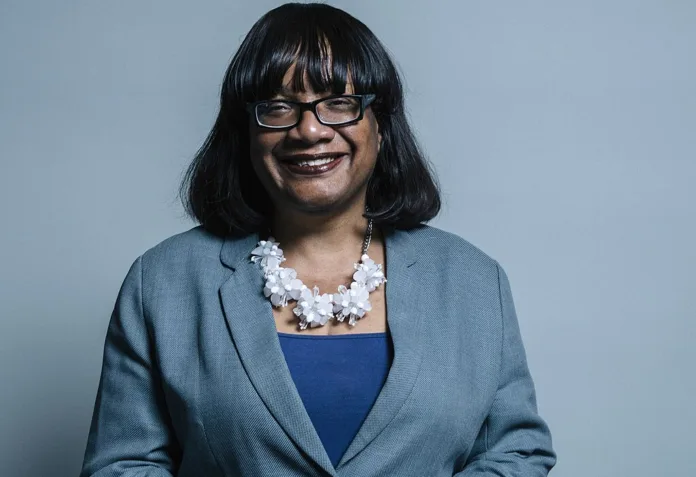Diane Abbott and other Labour MPs oppose proposed restrictions on winter fuel payments, with growing dissent within the party ahead of a key Commons vote
In a mounting rebellion against Sir Keir Starmer’s administration, a group of London MPs, including Diane Abbott, have voiced strong opposition to proposed cuts to the winter fuel allowance. The planned reduction, which aims to limit the £100 to £300 payments to pensioners only on pension credit and other means-tested benefits, has sparked significant unrest within Labour ranks.
Diane Abbott, MP for Hackney North and Stoke Newington, along with Bell Ribeiro-Addy (Clapham and Brixton Hill), have signed an Early Day Motion (EDM) criticizing the policy. The EDM, supported by John McDonnell and Apsana Begum, calls for postponing the restriction and highlights concerns over its impact on pensioners, particularly those just above the eligibility threshold for pension credit.
The EDM, tabled by Poole MP Neil Duncan-Jordan, argues that the cut is being introduced without adequate consultation or impact assessment and could exacerbate the problem of excess winter deaths among the elderly. With energy prices rising and the cost of living increasing, critics argue that the cut could have severe consequences for pensioners, leading to higher healthcare costs and increased suffering.
Embed from Getty ImagesFormer shadow Chancellor John McDonnell, now an independent MP, has indicated that he is prepared to vote against the Government if a revised proposal is not presented by Tuesday’s vote. McDonnell has urged Starmer and Chancellor Rachel Reeves to offer a solution that mitigates the impact on vulnerable pensioners.
While some Labour MPs, like Barry Gardiner of Brent West, are expected to vote with the Government, they anticipate a future adjustment to the policy to soften its impact. Other Labour MPs, including Rosie Duffield, have pledged to vote against the measure, reflecting widespread discontent within the party.
The controversy has also attracted the attention of unions and public advocacy groups. The Trades Union Congress (TUC) has criticized the Government’s approach, arguing that it undermines the benefits of universalism and could lead to adverse health outcomes for pensioners. Additionally, Liberal Democrat MPs have joined in opposing the restrictions, further intensifying the debate.
The Government has defended the cut as a necessary measure to address a £22 billion black hole in public finances, inherited from the previous Conservative administration. Prime Minister has emphasized the need for “tough choices” to stabilize the economy, despite acknowledging the unpopularity of the policy.
As the Commons vote approaches, the outcome remains uncertain. While approximately 50 Labour MPs are expected to either abstain or not participate in the vote, the actual number of those voting against the cut is likely to be lower. The internal divisions within Labour and the vocal opposition from MPs and unions highlight the complexity and potential repercussions of the proposed policy.
Analysis
Political:
The rebellion against the winter fuel allowance cuts underscores significant internal divisions within the Labour Party. MPs’ opposition reflects broader concerns about the party’s direction and its handling of austerity measures. This dissent could impact party unity and influence future policy decisions, especially if the rebellion results in a notable defeat or concession.
Social:
The proposed cuts have serious social implications, particularly for vulnerable pensioners. Critics argue that the restrictions could lead to increased hardship and health issues among the elderly, exacerbating existing inequalities. The public outcry and MPs’ concerns highlight the social impact of austerity measures and the need for robust support systems for the elderly.
Economic:
From an economic perspective, the cuts are intended to address significant fiscal challenges. However, critics argue that the potential savings from the policy might be offset by increased healthcare costs and social repercussions. The debate highlights the tension between economic austerity and social welfare, raising questions about the long-term effectiveness and fairness of such measures.
Racial:
While the winter fuel payment cuts primarily affect older individuals, there are indirect racial implications. Minority communities, which may face higher levels of economic disadvantage, could be disproportionately affected by reductions in social support. The broader discussion about targeting and universal benefits intersects with issues of racial and economic inequality.
Gender:
The impact of the cuts on gender is indirectly related but significant. Women, who represent a large portion of the elderly population, may be more affected by reductions in winter fuel payments. The policy’s broader implications for gender equality highlight the need for comprehensive support mechanisms that address the specific needs of older women.
